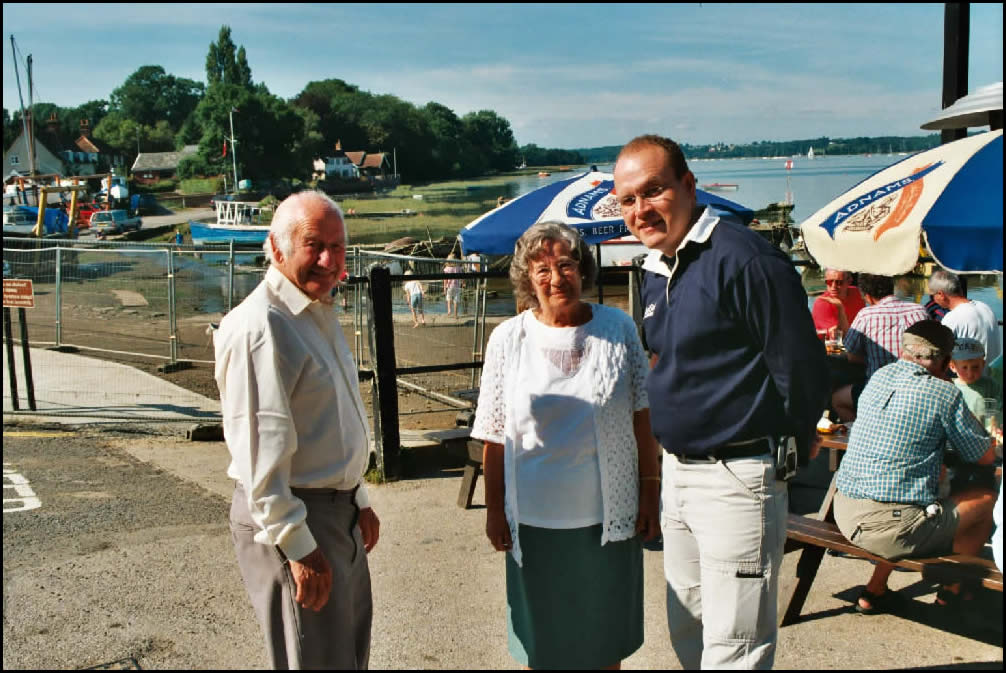| Dickie Mayes - 7 October 1922 – 10 July 2013 (Chris Snuggs - Berners/Halls 58-64) |
Dickie really was a legend, but one whom I certainly did not appreciate fully until years after leaving. One kind of takes so many things for granted at an age when one has so few frames of reference. It was only later that I realized how lucky Woolverstone Hall School was to have had such an accomplished and dedicated cricketer on its staff. Why lucky?
- He was both Head Groundsman and cricket coach for 31 years, effortlessly combining the two roles.
- He was a first-class cricketer who really knew his stuff and was able to pass his skills on in a clear, patient and encouraging way.
- He regularly played for Woolverstone Park and was thus an inspiration and a role-model to us.
- His pitches were always immaculate and prepared on time; that often involved an early rise to cut, water and roll the pitch(es) for that day's play. And it has been said they were among the best in Suffolk!
- I knew him for 6 years and never heard a cross or unkind word from him, even though some of us must have annoyed him on occasion!
As for the coaching, he was the one who taught us about:
- keeping the bat straight unless cutting or hooking
- watching the ball from hand to bat (sounds obvious, but it still needs doing properly)
- getting right to the pitch of the ball if playing forward, moving both feet if necessary
- killing the ball dead when deciding to defend - we practised the forward defensive for hours!
- not flashing wildly outside the off-stump
- not being afraid to leave a ball
- when bowling, putting the ball on a length - that was his obsession with us; he often put a handkerchief down in the nets and told us to try to land the ball on it!
In my experience, cricket at WHS was always taken seriously, with a quasi-professional approach, both in the play and behaviour in terms of sportsmanship - and in both these areas Dickie was our mentor. And he was of course massively backed up by the teaching staff who took responsibility for team selection and management - and gave of their time ourtside teaching hours - another thing we probably took for granted.
Dickie has gone, and if we didn't thank him enough before, then it is too late now - but he will never be forgotten by the boys who knew him.
Dickie and his wife at the Butt & Oyster on the occasion of our second Barge Cruise in 2004. |
 |
||||
 |
|||
Enjoying the sunshine in his immaculately-kept garden Dickie Mayes looked for all the world like a man who has spent a lifetime involved in sport. |
Based in Cairo, he played a lot of Service cricket and enjoyed one tour of Africa where he scored numerous runs. |
Apart from his coaching, Dick also looked after 70 acres of grounds at the school. He became professional for Suffolk at the age of 34, scoring 2,786 runs at an average of 30.61. |
Grime was a bigmate in the Sevices and played for Warwickshire. |